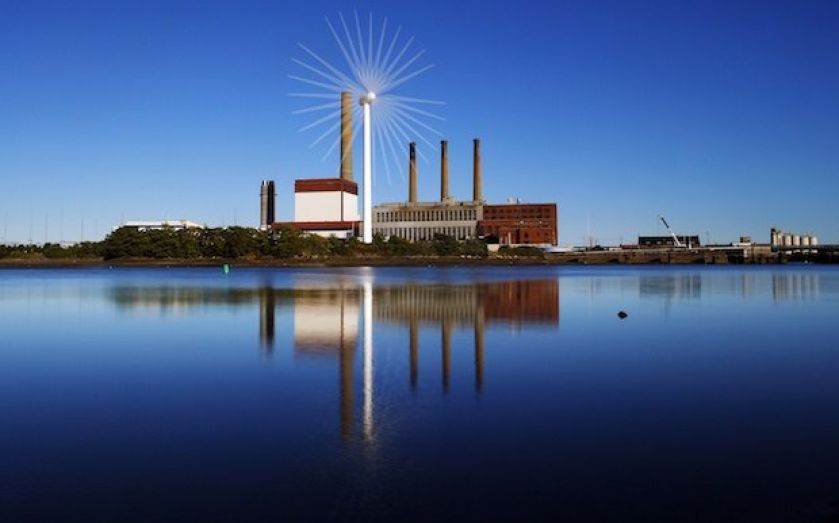Energy innovation is stagnating and the implications for growth are stark

EVERY day seems to bring better websites, cooler startups and niftier smartphones. But there’s one area where technological progress is barely crawling along. Unfortunately, it’s one race we cannot afford to lose. I’m talking, of course, about energy.
To get an idea of the problem we face, consider two stories from last week: Ed Miliband’s declaration of war on the energy companies, and MPs’ condemnation of BT for overcharging for rural broadband. These are superficially similar: politicians browbeating utilities about their prices. But one difference is telling. Energy companies are providing electricity and gas, the same products the industry has sold for over a century. When it comes to the internet, we are debating universal access to a technology that a generation ago most people would have regarded as science fiction.
We like to think we’re living through a technological revolution, but our Achilles’ heel is how little progress we’ve made in energy technology.
Energy literally powers the economy. It’s no accident that the industrial revolution began here, on a North Sea island stuffed with coal, nor that oil dominated the geopolitics of the twentieth century. As the science writer Matt Ridley has noted, fossil fuels give each of us the power of a thousand men. This is no less true today: iPhones are great, but are little use when the battery runs out.
Given how important energy is, we should worry that the power sources the world relies on have changed so little in the last 50 years. Coal, oil, and gas still supply most of the world’s electricity and heat. Nuclear has lost what little lustre it once had, thanks to Fukushima and decommissioning costs. Fracking has provided a welcome boost to energy supplies in the US (and soon, with luck, in the UK), but it represents the eking out of an existing energy source, not something new. And renewables still depend on large public subsidies.
There are a few reasons this stagnation should worry us. The most obvious is climate change: without radical energy innovation, mankind’s carbon emissions will continue to rise, bringing what climate scientists warn will be disastrous consequences. But this is not just an issue for environmentalists. Expensive oil and gas, often found in parts of the world run by tyrants and oligarchs, cost us. These costs must be borne by the businesses that use energy and the consumers they serve, and this depresses growth.
But there is a simple reason why energy innovation has been so slow: money. Investment in energy technology has fallen steadily over the last 30 years. In 1980, the US and the UK were spending between 0.1 per cent and 0.15 per cent of their GDP in energy R&D, according to the International Energy Authority. Today, the figures are more like 0.025 to 0.05 per cent.
Both the public and the private sector are to blame. Governments backed technologies from nuclear power to fracking, but since the 1980s they have invested less and less, especially as state energy monopolies were privatised.
Private investors have not taken up the slack. We would normally look to venture capital to back experimental new technologies: this is how the personal computer and the internet went mainstream. But venture capital returns in the energy sector have been dismal, and take a long time to realise. It’s no surprise that recent PwC figures show cleantech VC investment at its lowest level since 2006, representing only 6 per cent of deals.
This is not to say there are not promising possibilities. Solar power, for decades the least practical of all renewables, has recently fallen massively in price, thanks in part to lashings of state research in China. It is expected to be competitive with coal in sunny parts of the world within five years. (You can now even buy your own panels at Ikea.) There’s also hope for nuclear. Bill Gates is backing the development of so-called Generation IV nuclear reactors (such as those that run on thorium rather than uranium), which offer green electricity without the risk of meltdowns. Fracking, if done safely, can help provide a cleaner and more affordable path to these new technologies.
The demand side matters too. McKinsey argues that the best energy investment is in efficiency: convincing people to save energy and insulate could save the world $900bn (£555bn) a year, as well as megatons of carbon. This will take entrepreneurial nous of the first order, but whoever can be the Stelios of car-sharing or the Jeff Bezos of lagging will do the world a great service.
But all of this will take investment. In recent years, energy has appealed only to the loosest money in the market: the personal fortunes of internet billionaires and the Chinese state. Until other investors are willing to take the plunge behind them, our energy future will remain on hold.
Stian Westlake is executive director of research at Nesta.